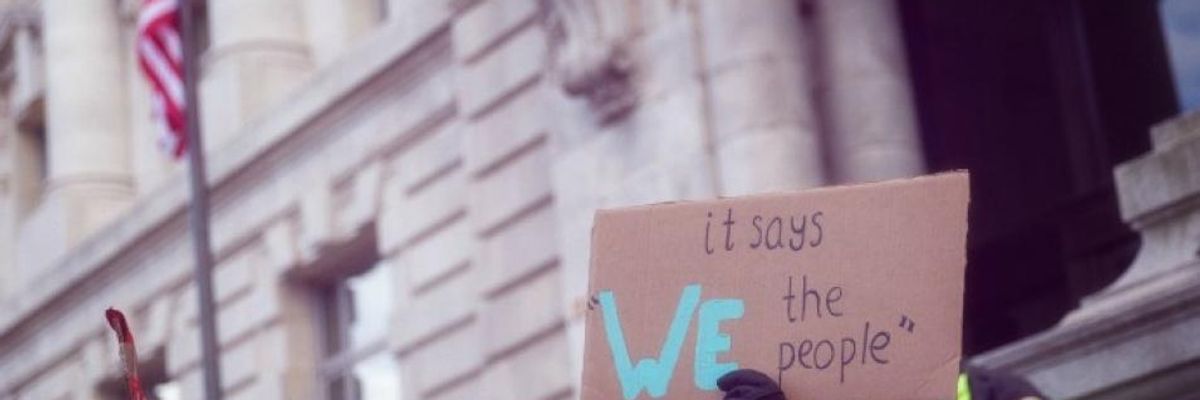As President Donald Trump escalates his anti-immigration policies and rhetoric, more and more spaces are standing up for undocumented immigrants.
The Guardianreported Tuesday on libraries throughout the country launching initiatives to make their immigrant visitors feel welcome, from hanging posters that read "Libraries for Everyone" to running the LibrariesResist Twitter account.
Many libraries have even declared themselves sanctuaries, where people can seek legal advice or shelter from Immigration and Customs Enforcement (ICE).
Indeed, the sanctuary movement has taken off among many institutions.
Churches and synagogues throughout Massachusetts, for example, have begun making preparations to shelter undocumented immigrants in what the Boston Globe describes as a "hub" formation--helping each other close the gaps in their support services. If one congregation doesn't have the facilities to house people, they pledge to help others with food, transportation, and 24-hour accompaniment.
The Globe reports:
At least three Boston-area congregations have committed to offering living space in their buildings to illegal immigrants. A half-dozen more statewide are in serious internal discussions about doing so. And dozens of synagogues and churches have agreed to offer logistical and political support. Some Muslim and secular activists are helping as well.
[...] The idea behind the sanctuary movement is not to secretly harbor illegal immigrants, but rather to take a public stand and showcase the stories of people at risk of deportation. Congregations that house immigrants plan to trumpet what they are doing in the media so that the stories of individuals affected by the policy can be brought to light.
While there is no law barring ICE from arresting an undocumented immigrant in a sanctuary, agents are urged not to enter houses of worship or other "sensitive locations" without advance approval or exigent circumstances--although some said Tuesday's immigration guidelines put that "sensitive locations guidance" in doubt.
The desire to protect immigrants has spread rapidly since Trump's rise to power. States and cities throughout the U.S. have declared themselves sanctuaries in the month since he took office, risking federal funding. Even Canada has joined in, with Montreal voting Monday to officially designate itself a sanctuary city, approving a declaration introduced by Mayor Denis Coderre, who formerly served as the country's immigration minister.
Rev. Kathleen O'Keefe Reed, the pastor at the University Lutheran Association of Greater Boston, which is taking part in the Massachusetts hub, told the Globe that the participants understand the legal and financial dangers of their work--but, she said, "love that doesn't risk isn't love."

